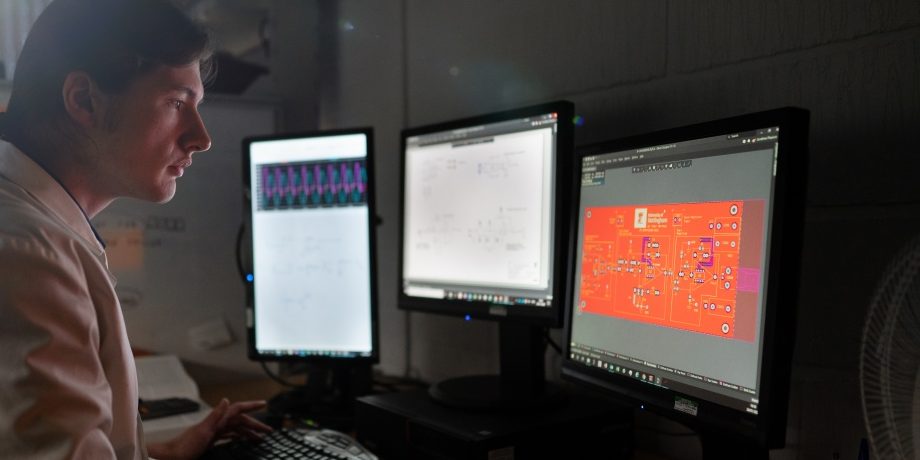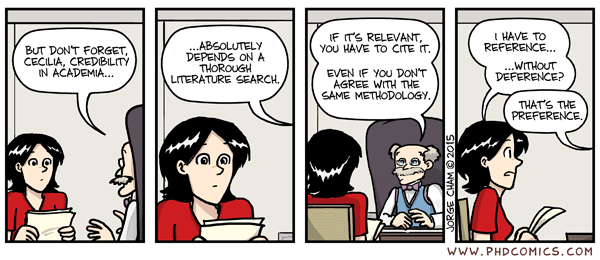
June 16, 2021, by Lisa Chin
Getting to grips with literature review
A pilot course
“If you are at the early stage of your PhD, writing your literature review can be a great challenge,” said Dr Revathy Sankaran, Research Training Development Assistant Manager at the Graduate School. So why is writing a literature review such a daunting work? And how you can tackle it?
A pilot course delving into these questions on literature review and academic writing was conducted on 14 June 2021 by Dr Sankaran. Almost 40 postgraduate students attended this inaugural course, online via MS Teams. In addition to understanding the purpose and fundamental requirements of an effective literature review, the course aimed at providing useful guideline on the overall literature writing process. It covered the basics of literature review by answering some infamous commonly asked questions and undertaking several hands-on activities that allowed students to practise effective strategies and techniques for developing, organising and drafting a literature review.
Breaking down the literature review
Whilst it can be challenging, the good news is that the literature review is not entirely an unknown territory. Aside from outlining the contents, components and characteristics of effective literature review, Dr Sankaran also shared some of her trodden literature review guidelines that students can consider about how to begin with planning, reading and researching, analysing, drafting and finally, revising.
“When you are doing your reading and researching, you don’t have to read everything – you can’t,” said Dr Sankaran. Instead, be smart and learn to find and grasp the keywords. “The more you practise the skill (of scan-reading), the easier it gets,” continued Dr Sankaran.
Strategising using a review matrix
Using a literature review matrix template and a mind map as a guide, Dr Sankaran did an interactive activity which provided an opportunity for students to practise the theoretical elements that were covered in the earlier part of the course. The review matrix is a technique which enables the identification and comparison of articles to determine the necessity for an extensive research criterion and further establish the scope of research over time.
Writing and more writing
The last part of the course focused on the writing process with emphasis on preparatory writing which happens when you write the first draft of your literature review. Dr Sankaran introduced some brainstorming techniques which include listing, clustering, freewriting and looping. She further provided some useful pointers and tips in creating an effective writing plan. “Always have a clear and detailed plan of what you intend to write before you start writing,” advised Dr Sankaran.
It may be trivial to some but choosing an effective title is also important. “The title you select for your chapter should seize the focused range of ideas articulated through the chapter as a whole and captivate readers,” advised Dr Sankaran.
Summing up
We hope that the course was helpful for our postgraduate students in gaining knowledge and insights into literature review and academic writing.
The course may be offered again in the future subject to applicability and equitable demand.
For any enquiries or more information, please contact us at graduateschool@nottingham.edu.my.
-
Post a comment


